“Toda la tierra es una sola alma.
No podrán morir nuestras almas,
cambiar sí que pueden;
pero no apagarse.
Una sola alma somos
Como hay un solo mundo”
“The whole Earth is one soul.
Our souls can’t die,
to change, they can;
but to fade away not.
One soul we are,
as there is only one world”
Cacique Abel Kurüuinka, “Canto mapuche” (1963)
Palabras Madres: Bridging people and land through language: words that matter from Mapuzugun, to Spanish, to English
Students from Span 301-102 through Spanish for Community, guided by scholars from UFRO and members of the Mapuche nation, will create an anthology of words and poetry from Mapuche authors in Mapuzugun and Spanish, providing an English translation. Students will reflect on both texts and the translation process, find images from the local landscape and arts, creating a visual connection between words and territories. The combination of texts and images will be integrated in a blog.
SPAN 301-102 Community Engaged Learning (CEL) Component
Course-Based Project Overview
- Creation of a blog with a trilingual multimedia anthology (Mapuzugun-Spanish-English) of a glossary of key concepts from Mapuche ancestral knowledge and poetry by Mapuche authors. This anthology, related to nature and land, is based on the project central theme of Indigenous and Earth rights.
- A translation and multimedia community engaged project.
Spanish for Community Partners
- Área de Literatura del departamento de Lenguas, Literatura y Comunicación de la Facultad de Educación, Ciencias Sociales y Humanidades, Universidad de la Frontera, Chile
- Instituto de Estudios Indígenas (UFRO)
- Dirección de Investigación (UFRO)
Partner Liaison and Project Co-Designer
- Dra. Carolina Navarrete (UFRO)
Co-Teaching Component
- Dra. Carolina Navarrete (UFRO)
- Mgtr. Jacqueline Margarita Caniguan (UFRO, University of Leiden)
- Mgtr. Fabián Leal Ulloa (UFRO)
Learning Outcomes
- Identify and apply cultural, topic-specific vocabulary and grammar structures in appropriate contexts through community-engaged learning (CEL) projects.
- Retrieve specific content from audio, audio-visual resources, and native speakers’ guests.
- Read, analyze and discuss a variety of cultural and literary texts understanding cultural, geographic, and historical contexts with linguistic complexity.
- Expand and develop cross-cultural awareness and understanding by studying, describing, and comparing critically diverse aspects of the Hispanic culture.
- To expand awareness and understanding of the role of indigenous languages and colonial languages across the continent in transnational contexts.
- To develop strategies and solve questions of linguistic mediation (English-Spanish, Spanish-English).
Number of students: 30 (Spanish 301, section 102, mandatory)
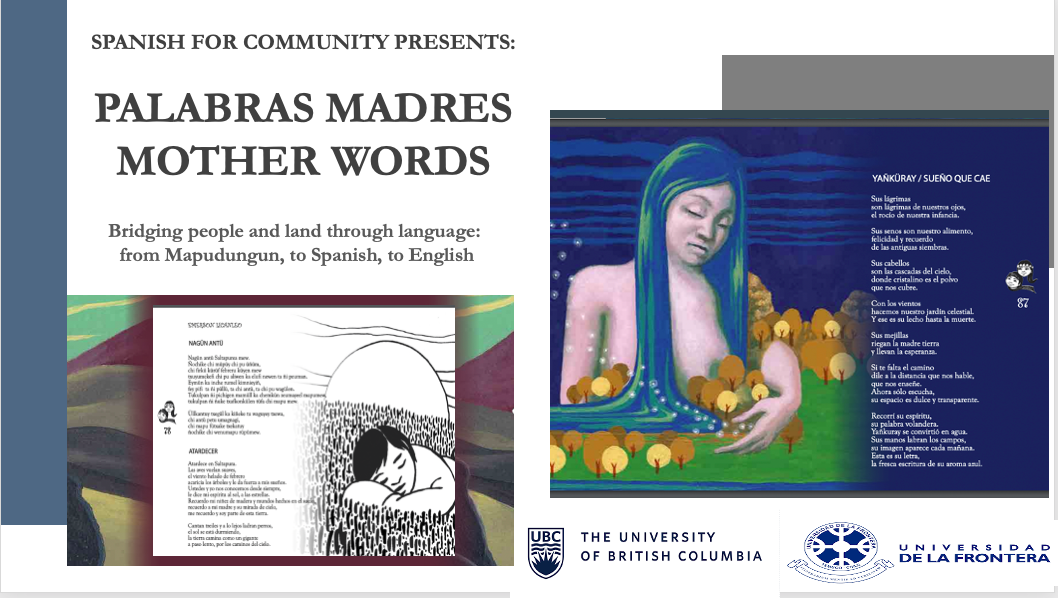
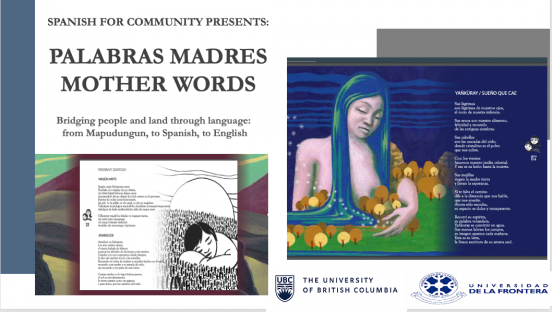

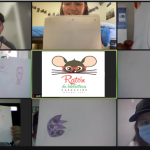
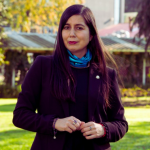
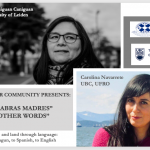
Comments by lorenia salgado-leos